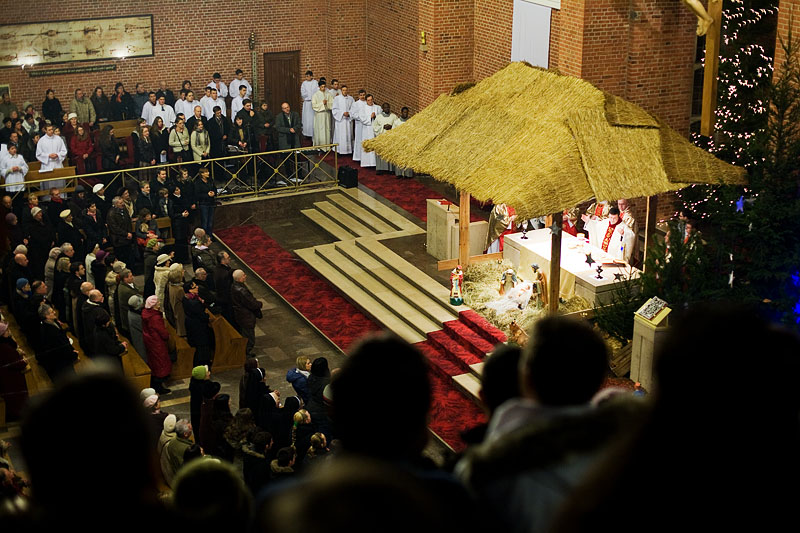Polish bishops have extended dispensation for the faithful not to attend mass over Christmas due to the pandemic. They have also announced that traditional pastoral visits will be restricted in many places.
A number of bishops had previously issued decrees allowing Catholics in their dioceses not to attend church services on Sundays and during holidays without it constituting a sin.
Some have now moved to extend this until after Christmas, including Grzegorz Ryś, the archbishop of Łódź, and Edward Dajczak, bishop of Koszalin-Kołobrzeg.
Ryś said that churches would remain open for those who wanted to attend services, but he suggested that confession should take place “outside the confessional” and “in the presbytery or side nave of the church, or in the sacristy or outside the church,” reports Onet.
Dajczak encouraged Poles to tune into masses broadcast on the radio and television instead of attending in person.
Church attendance is currently limited to one person per 15 square metres. The government recently confirmed that current coronavirus restrictions will remain in place over Christmas, and that people will only be allowed to host up to five guests in their homes during the holiday period.
On Monday, the spokesman for Poland’s Catholic episcopate, Leszek Gęsiak, warned the faithful that the traditional pastoral visits by priests to people’s homes after Christmas would have to be restricted in many places this year.
The following day, the Archdiocese of Warsaw announced that parish priests will themselves decide about whether they will hold such visits. The decision will be based on “the situation in their parish, the opinions of the faithful, and above all the sanitary restrictions in force”.
Parish priests are to opt for one of three formats. They may invite congregants from a part of the parish, such as one building or neighbourhood, to attend mass together in church. Alternatively, they may hold pastoral visits at the invitation of parishioners, or even conduct them in traditional form, “especially in rural parishes”.
Post-Christmas pastoral visits are a widely practised tradition in Poland, where over 90% of the population are officially classified as Catholic. The visits usually take place between Christmas and Candlemas on 2 February.
Last month, the bishop of Katowice, Wiktor Skworc, had already announced that pastoral visits would be “limited to blessings of new houses and flats at the invitation of the hosts”, reported Gazeta Wyborcza. But in some cities, including Kraków, the form of this year’s pastoral visits is yet to be confirmed.
Churches have remained open throughout the pandemic, despite cultural venues, schools, restaurants and many shops having to close. During the first wave, some priests faced criticism for encouraging people to continue practising their faith as normal.
In March, Archbishop Andrzej Dzięga reassured churchgoers that, because “Christ does not spread viruses” and “Satan is powerless in the face of holy water”, they would be safe attending church.
An increased number of Poles have this year chosen to join masses by watching and listening to broadcasts on television and radio.
The average number of viewers for Sunday mass on TVP, the public broadcaster, rose from 435,000 at the start of the year to a record 1.7 million between mid-March and mid-April.
In September, TVP concluded a new agreement with the episcopate to screen more “programmes and religious messages of the Catholic church”.
Main image credit: Szymon Kochański/Flickr (under CC BY-NC-ND 2.0)

Maria Wilczek is deputy editor of Notes from Poland. She is a regular writer for The Times, The Economist and Al Jazeera English, and has also featured in Foreign Policy, Politico Europe, The Spectator and Gazeta Wyborcza.




















